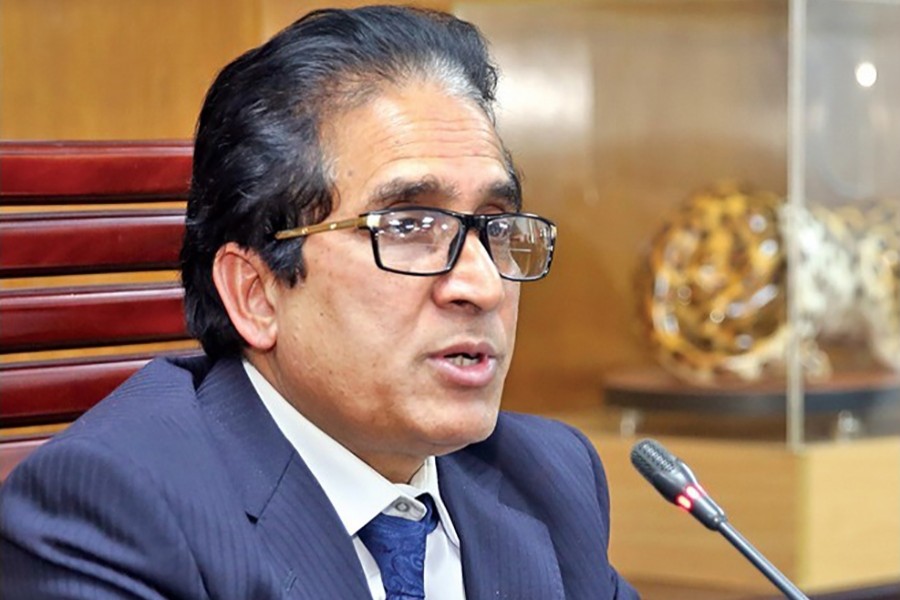The National Board of Revenue (NBR) Chairman Md Mosharraf Hossain Bhuiyan said most of the businesses are claiming their annual turnover to be lower than Tk 30 million to evade payment of value added tax (VAT) at regular rates.
The businesses having an annual turnover below Tk 30 million are entitled to enjoy a reduced rate of VAT at 4.0 per cent, known as turnover VAT, instead of paying VAT on their actual sales of goods and services.
Mr Bhuiyan said the NBR has asked its field-level officials to remain aware of such VAT-evaders to keep revenue collection flow uninterrupted.
The NBR chief also stressed the need for speeding up installation of Electronic Fiscal Device (EFD) to check such VAT evasion.
He made these statements at the 'Customs Modernisation Strategic Action Plan for 2019-2022' launching ceremony at a city hotel on Wednesday.
The NBR and the Bangladesh Investment Climate Fund (BICF II), implemented by the International Finance Corporation (IFC) and funded by the Department for International Development (DFID), jointly organised the programme.
The NBR chief said customs officials should focus on capacity development for enabling themselves to work with advance technologies.
Sustainability of any project largely depends on capacity of the officials concerned, he opined.
"Reluctance of the officials along with their tendency to lobby for good posting is responsible for failure of many projects," he added.
Prime Minister's Economic Affairs Adviser Mashiur Rahman focused on some factors, including improving skills of taxmen, maintaining positive attitude, ensuring efficient human resource management, and developing an enable environment, to improve Bangladesh's position in ease of doing business.
There should be strong focus on improving human dimension in tax administration, he opined.
Vice President of the Federation of Bangladesh Chambers of Commerce and Industry (FBCCI) Siddiqur Rahman said the cost of doing business should be lowered to facilitate trade in the country.
"Cost of air freight is 14 cent in Bangladesh, which is 7.0 cent in India."
A comprehensive effort is required for addressing issues like power and gas supply situation as well as bank interest rates for ensuring an export-led growth, he noted.
Khondaker Muhammad Aminur Rahman, the NBR member (customs audit, modernisation and international trade) said the customs modernisation strategic plan has been prepared for 2019-2022 period in line with the World Trade Organisation's (WTO) Trade Facilitation Agreement.
The action plan is a time-bound, evidence-based and resulted-oriented comprehensive one for improving the country's ease of doing business situation, he added.
M Masrur Reaz, the World Bank Group senior economist and the BICF programme manager, said export-led growth has been the cornerstone of Bangladesh's journey towards growth.
"The NBR's leadership in improving investment climate through ensuring ease of trading across borders will be immensely supported by the action plan," he opined.
In the programme, the NBR First Secretary Md Raich Uddin Khan gave a presentation on the strategic plan.


